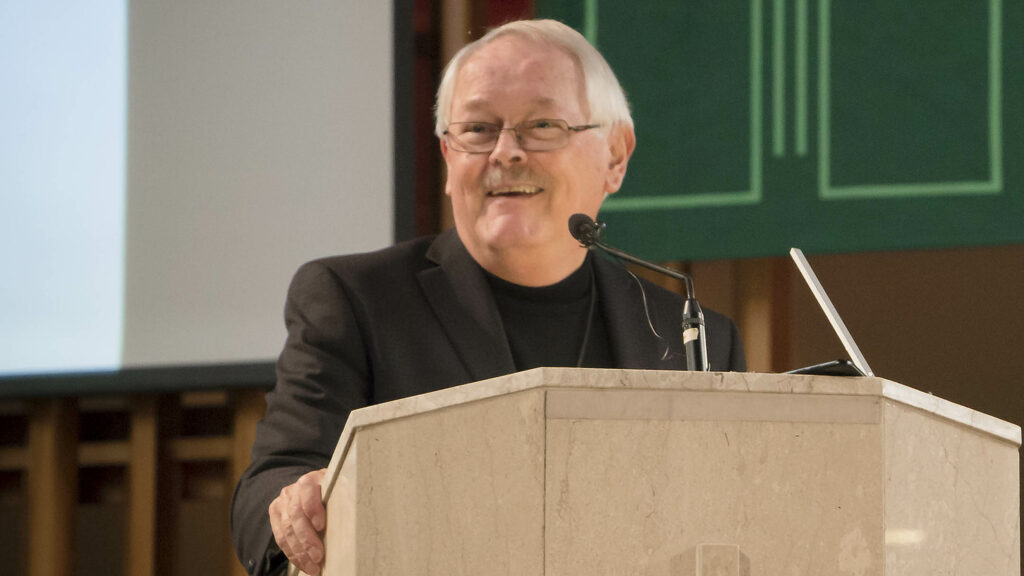Nothing is as important as forgiveness. It is the key to happiness and the most important spiritual imperative in our lives. We need to forgive, to make peace with the hurts and injustices we have suffered so as not to die angry and bitter. Before we die, we need to forgive – others, ourselves, and God, for what happened to us in this life.
But, that isn’t easy to do; indeed, sometimes it is impossible to do. That needs to be said because today there is a lot of well-intended literature around, in every kind of circle, which gives the impression that forgiveness is simply a question of willing it and moving on. Let it go and move on!
It doesn’t work that way, as we all know. Wounds to the soul take time, a long time, to heal, and the process is excruciatingly slow, something that cannot be rushed. Indeed, the trauma from an emotional wound often affects our physical health. Healing takes time.
In looking at the question of healing and forgiveness, we can get a long-neglected, valuable insight from the Jewish and Christian spirituality of the Sabbath. Keeping the Sabbath holy isn’t just about honoring a certain day of the week; it’s also a formula for forgiveness. Here’s how it works.
The theology and spirituality of Sabbath teach us that God created the world in six days and then rested on the seventh day, the Sabbath. Moreover, not only did God rest on the Sabbath, God declared this a day of rest for everyone forever, and with that God set up a certain rhythm for our lives. That rhythm is supposed to work this way:
- We work for six days, then rest for one day.
- We work for seven years, then rest for one year (a sabbatical).
- We work for seven times seven years, forty-nine years, then have a jubilee where the world itself goes on sabbatical.
- We work for a lifetime, then enjoy an eternity of sabbatical.
Now, that rhythm is also intended as the rhythm for how we move towards forgiveness:
- We can hold a mini-grudge of seven days, but then we need to give it up.
- We can hold a major grudge for seven years, but then we need to give it up. (The “statute of limitations” is based on this.)
- We can hold a massive soul-searing wound for forty-nine years, but then we need to give it up.
- We can hold a massive soul-shattering wound until our deathbed, but then we need to give it up.
This highlights something which is too often absent in therapeutic and spiritual circles today, namely, that we need time to be able to forgive, and that the length of time needed is contingent upon the depth of the hurt. Thus, for example:
- When we are slighted by a colleague at a meeting, we need a little time to sulk about that injustice, but normally a few days can help put it into perspective and enable us to let it go.
- When we are coldly terminated at a job by an unfair employer, seven days or seven weeks will often not be enough time for us to put this into a larger perspective, to let it go, and to forgive. Seven years is a more realistic timeframe. (Note that the “statute of limitations” vis-a-vis this biblical insight.)
- There are traumas we suffer which leave far deeper wounds than those left by an unfair employer who treated us unfairly. There are wounds we suffer from abuse, neglect, and years of injustice that need more than seven years to process. It may take forty-nine years, half a century, to make peace with the fact that we were bullied as children or were emotionally or sexually abused in our youth.
- There are wounds so deep and traumatic that it is only on our deathbeds that we can make peace with the fact that they happened to us, let them go, and forgive the person or persons responsible for them.
- Finally, there can be wounds that are too deep, too disempowering, and too painful to ever process in this life. For them, thankfully we have the merciful healing embrace of God after death.
The ability to forgive is more contingent upon grace than upon willpower. To err is human, but to forgive is divine. This little slogan contains a deeper truth than is immediately evident. What makes forgiveness so difficult, existentially impossible at times, is not primarily that our egos are bruised and wounded. Rather, the real difficulty is that a wound to the soul works the same as a wound to the body; it strips us of our strength.
This is particularly true for those soul-searing and soul-shattering traumas that take forty-nine years or a lifetime to heal, or sometimes can never be healed in this lifetime. Wounds of this kind radically disempower us, particularly towards the person who did this to us, making it very difficult for us to forgive.
-Rev. Ron Rolheiser, O.M.I. is president of the Oblate School of Theology in San Antonio, Texas. Before taking his current position he taught for many years at Newman Theological College.

